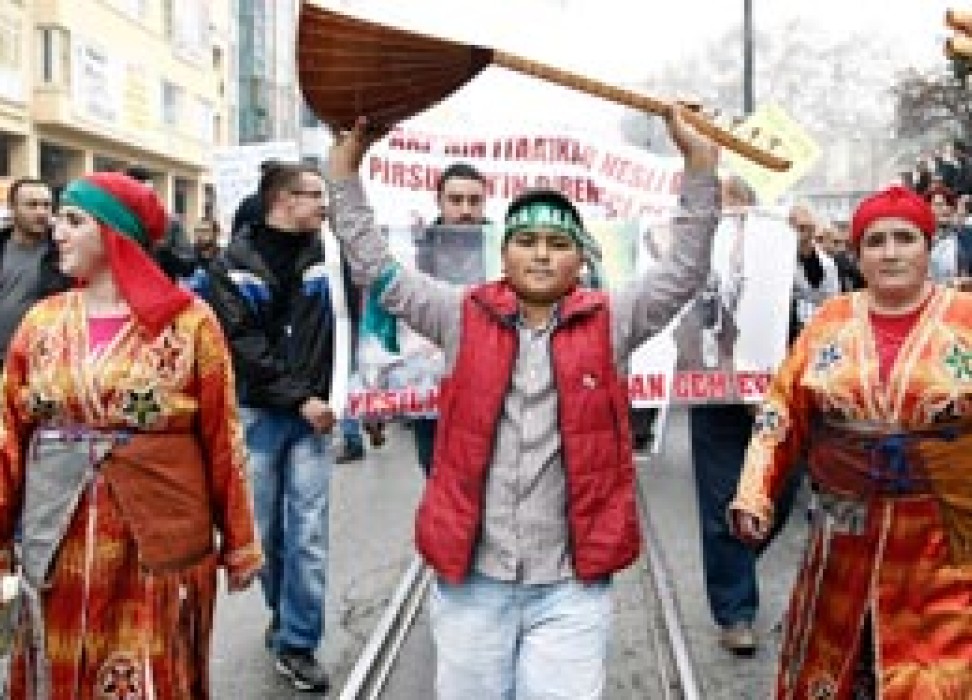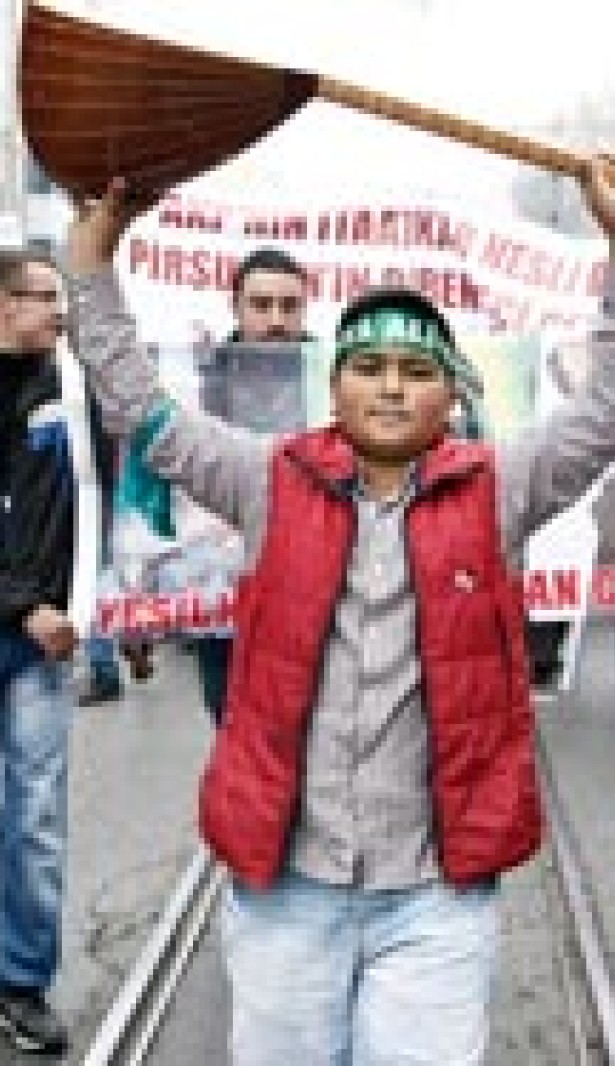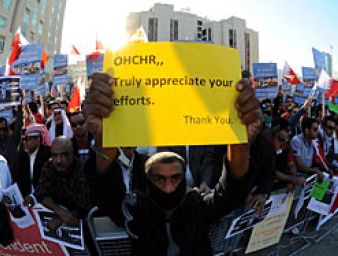Tackling manifestations of collective hatred
01 April 2014

“Manifestations of collective hatred poison the relationship among communities, threaten individuals and groups and are a source of innumerable human rights violations perpetrated by State agencies and/or non-State actors,” the UN Special Rapporteur on freedom of religion, Heiner Bielefeldt, recently told the Human Rights Council in Geneva, where he presented his latest report.
“Hate-filled sentiments are often caused by a peculiar combination of fear and contempt which can trigger a vicious circle of mistrust, narrow-mindedness, collective hysteria, contempt-filled rumours and fear of imaginary conspiracies,” Bielefeldt said.
The report also highlights aggravating political factors that reinforce the scapegoating of religious groups, such as an authoritarian political atmosphere which impedes public debate and creates a “mentality of suspicion”; and the instrumentalization of religion by politicians to promote a concept of national identity that leads to the marginalization of religious minorities. Bielefeldt also highlighted corruption as a cause for manifestations of collective hatred because it undermines trust in public institutions and creates inward-looking mentalities.
The Rapporteur noted that tackling manifestations of collective hatred had become a pressing issue for the international community. The Rabat Plan of Action resulting from a series of regional expert workshops organized by the UN Human Rights Office in all regions of the world, provides a roadmap for States and other actors in their quest to prohibit the advocacy of national, racial or religious hatred that incites to discrimination, hostility and violence.
The Rabat Plan of Action establishes a high threshold for limitations on freedom of expression - as set out in article 20 of the International Covenant on Civil and Political Rights - that takes into account the speaker, the intent and the likelihood of harm, among other criteria. The Plan of action was designed to help legislators draw a line between free speech and speech that can be identified as incitement to hatred.
“What we require to prevent and respond to incidents of incitement to hatred are policies which promote a creative and productive use of freedom of expression,” Bielefeldt said. “For instance, in order to challenge advocates of religious hatred when they claim to speak in the name of “the silent majority”, it is important that the majority does not remain silent.”
He also stressed that State policies devised to counter hatred should focus on building trust and respecting human dignity.
“By ensuring respect for all human beings as holders of profound, identity-shaping convictions, freedom of religion or belief plays a pivotal role in anti-hatred-policies, both in trust-building through public institutions, as well as in trust-building through communication,” he added.
Trust-building activities should include establishing trustworthy public institutions and promoting meaningful communication among different religious or belief communities. The Rapporteur highlighted his first-hand experience of positive inter- and intra-religious communication in Sierra Leone where the Interreligious Council was a key factor in efforts to reunite a country that had been torn by civil war.
“I found the open and amicable climate of interreligious cooperation in Sierra Leone- which not only includes Muslims and Christians, but also intra-religious groups, such as Sunnis, Ahamdis, Shias, Catholics, Anglicans and Evangelicals- quite remarkable,” he said.
“Likewise Jordan which provides a safe haven for religious pluralism in a region marked by increasing religious and sectarians tensions.”
1 April 2014



